#kenyan economy
Text
Record 70Million Bags of Maize Harvest: How Government Policies on Fertiliser Subsidies Are Paying Off
“Discover how Kenya’s record maize harvest of 70 million bags is reshaping the nation’s food security, driven by government subsidies and favorable weather conditions.”
“Kenya’s maize harvest hits an all-time high! Learn about the factors behind the bumper crop and its impact on the country’s agricultural future.”
“Explore the success story of Kenya’s maize harvest reaching 70 million bags,…
#agricultural policy#agricultural success#bumper crop#Crop management#crop yield#farming techniques#fertiliser subsidies#Food security#food supply chain#government subsidies#harvest season#Kenya Agriculture#Kenyan economy#kenyan farmers#Kenyan weather#maize bags#maize cultivation#Maize farming#maize farming challenges#maize harvest#maize harvest 2024#maize market#maize prices#maize production#maize production increase#maize storage#maize surplus#maize yield#record maize harvest#sustainable farming
1 note
·
View note
Text
Weeks since protests began, determined Kenyans continue going out to voice their frustrations with the government.
But when demonstrators first took to the streets in June to rally against proposed tax hikes, it was not only President William Ruto and members of parliament who came under fire.
In the protests that later turned deadly, placards were raised denouncing the International Monetary Fund (IMF) and World Bank, which were accused of causing the crisis. “IMF, World Bank, Stop the Modern Day Slavery,” one placard read.
Across the capital, Nairobi, graffiti denouncing the organisations is visible even as protesters continue to demand Ruto resign.
So what is the IMF’s role in the current crisis, and what are Kenyans now demanding from the organisation?
What did the IMF do?
For years, multilateral lenders, especially the IMF, have had bad reputations in African countries for providing loans to desperate countries based on stringent conditions that critics said have always disproportionately affected the poor.
African leaders, including Ruto, have also criticised international lenders for what they said are disproportionately high interest rates compared with other developing countries.
In Kenya, that anger is fresh because Ruto’s now-withdrawn tax hikes as well as similar legislation passed in 2023 are both linked to IMF loans as Kenya staggers under the weight of a heavy debt crisis.
While some of the complaints against the IMF are true, African leaders are often to blame, Dumebi Oluwole, an economist with the data intelligence start-up Stears, told Al Jazeera. The higher interest rates, she said, are often because of records of default. The stringent conditions from lenders like the IMF have also been applied to distressed countries elsewhere, like Greece, which went through an economic crisis in 2009 and was partly bailed out by the lender, but African leaders often rely on options that hurt the majority, she said.
“African leaders are the sellouts,” she said. “We all know that IMF loans come with conditions, but some leaders, when asked to raise revenue, will choose taxation rather than cut costs. Then they’ll blame the IMF. Someone can only dangle crumbs in your face when you don’t know how to cook.”
continue reading
1 note
·
View note
Text
Boniface Mwangi's Car & The Kenyan Economy
Boniface Mwangi's Car & The Kenyan Economy
Netizens have this morning turned the photo of Boniface Mwangi’s broken down Mercedes Benz into a meme about the current state of our economy.
Yesterday, Tuesday, March 7, the activist posted photos of his broken down vehicle while describing how the vehicle ended up on a flatbed truck. According to Mr. Mwangi, his luxury German vehicle developed mechanical issues as he was driving along the…
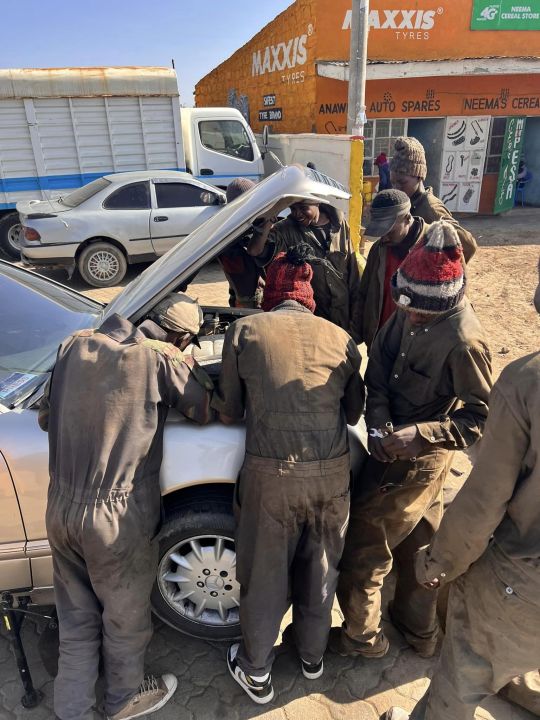
View On WordPress
0 notes
Text
Local rapper Sabi Wu sampled Lamar’s diss track to write an anthem opposing the Kenyan government’s tax bill
youtube
#Sabi Wu#Kenya#Kenyan#Kendrick Lamar#Not Like Us#Tax bill#finance bill#economy#diss track#rap#hip-hop#hiphop#music#The Rolling Stone#Rolling Stone#Obama#Dr. Auma Obama#Ezra Ruto#Reject Hio Bill#Kui Mwai#article#Youtube
6 notes
·
View notes
Text
Microsoft to invest $1 billion in the Kenyan digital economy
Microsoft has announced that it will in partnership with G42 and other stakeholders invest $1 billion in the Kenyan Digital Economy.
One of the Kenyan investment priorities is a state-of-the-art green data center that will be built by G42 and its partners to run Microsoft Azure in a new East Africa Cloud Region.
The initiative will include four additional pillars that will be pursued with local…

View On WordPress
0 notes
Text
Kenya can have democracy or neocolonial extraction, but not both – because democracy means addressing the demands of the Kenyan people for jobs, healthcare, education, housing, transportation and basic social protections under a fair and equitable fiscal regime, while colonial extraction means the destruction of economic and monetary sovereignty, austerity for the poor, extravagant lifestyles for the elites, corruption, injustice and socioeconomic exclusion under a fiscal regime that accelerates the engines of economic entrapment.
One cannot democratize a system that hasn’t been structurally and economically decolonized yet. Despite Kenya’s democratic institutions, transparent elections, independent judiciary, freedom of speech and vibrant civil society spaces, its elected governments systematically undermine the social and economic demands of Kenya’s population – less because those governments wish to ignore the mandate given to them by the electorate, but because they face financial pressures from abroad that force them to prioritize external debt service and the financial needs of creditors and foreign investors.
In 2019, Kenya used 19% of its export revenues to service external debt; today that number has jumped up to nearly 50%. When a country uses half of its export revenues to pay interest on its external debt instead of investing in the basic pillars of development and prosperity, it is not surprising to see the kind of revolt that we have seen in Nairobi against the 2024 finance bill.
This makes Kenya a classic case of an economy steered from abroad, by colonial design rather than by accident.
The fact that Kenya is in a debt trap after decades of following IMF policy prescriptions means that either the IMF is incompetent or it is engaging in intentional economic entrapment. I believe it’s the latter. It is time to end the entrapment and to decolonize the Kenyan economy.
10 July 2024
137 notes
·
View notes
Text
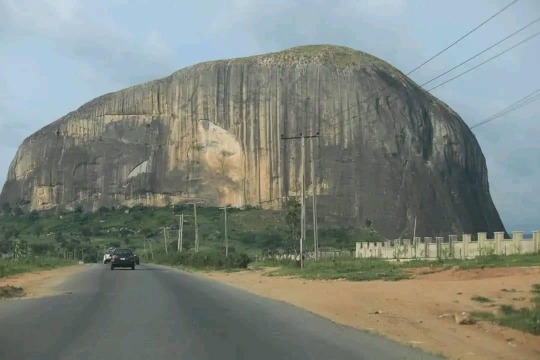
🌍 1) Largest country in Africa by land mass - Algeria 🇩🇿
2) Largest country in Africa by population - Nigeria 🇳🇬
3) Largest movie industry in Africa - Nigeria 🇳🇬
4) Largest democracy in Africa - Nigeria 🇳🇬
5) Richest Black man - Nigerian 🇳🇬
6) Richest African woman - Nigerian 🇳🇬
7) largest single solar power plant in Africa - Morocco 🇲🇦
8) Largest Museum in Africa - Egypt 🇪🇬
9) Tallest building in Africa - Egypt 🇪🇬
10) Largest rice mill in Africa - Nigeria 🇳🇬
11) Largest fertilizer plant in Africa - Nigeria 🇳🇬
12) largest oil refinery in Africa - Nigeria 🇳🇬
13) largest fish farm in Africa - Egypt 🇪🇬
14) largest cement plant in Africa - Nigeria 🇳🇬
15) largest tea farm in Africa - Kenya 🇰🇪
16) largest music industry in Africa - Nigeria 🇳🇬
17) largest stadium in Africa - South Africa 🇿🇦
18) Fastest train in Africa - Nigeria 🇳🇬
19) longest subsea gas pipeline in Africa - Nigeria 🇳🇬
20) largest city by population - Nigeria 🇳🇬
21) Largest news network in Africa - Nigeria 🇳🇬
22) largest car race arena in Africa - South Africa 🇿🇦
23) largest pharmaceutical industry in Africa - Nigeria 🇳🇬
24) Fastest woman in Africa - Nigerian 🇳🇬
25) Fastest man in Africa - Kenyan 🇰🇪
26) largest stock exchange by market capitalization in Africa - South Africa 🇿🇦
27) largest stock exchange by number of listings - south Africa 🇿🇦
28) longest concrete road in Africa - Nigeria 🇳🇬
29) largest airline in Africa - Ethiopia 🇪🇹
30) most streamed musicians in Africa - Nigeria 🇳🇬
31) most awarded artist in Africa - Nigerian 🇳🇬
32) largest mall in Africa by structure - Morocco 🇲🇦
33) most valuable tech startup in Africa - Nigeria 🇳🇬
34) most valuable company in Africa - South Africa 🇿🇦
35) largest economy in Africa - Nigeria 🇳🇬
36) Most tribes in Africa - Nigeria 🇳🇬
37) most languages in Africa - Nigeria 🇳🇬
39) largest seaport In Africa by size - Morocco 🇲🇦
40) largest university in Africa by area - Nigeria 🇳🇬
60 notes
·
View notes
Text
this week has been emotionally difficult for me. heck, ever since 2020 happened it's been constant coping tbh. i just woke up and watched soldiers fire at red cross medics at parliament. in my city. i just saw dead bodies litter my twitter. fellow countrymen. i am watching women and men choke on teargas. the country may go dark soon because now the the oligarch we call president is treating the protests as a coup. at least one million protestors out in the streets today. several died and more injured. there is going to be a state of emergency declared soon.
do you know what i was doing in 2019? going to movies and seeing all sorts of new places. in just three years, everyone is penny pinching. in just three years, this city full of startups and a rising business sector is set to be reduced to haitian levels of poverty. biden sends our soldiers to fight in a country he destabilized. did i say fight? i meant die :)
at the snap of a white man's fingers. american congressmen were in kenyan parliament. determining what would happen to this country. willing to tank our economy. one my grandparents fought and bled for. one my parents slaved for. my parents should be retiring GODDAMNIT. but we aren't people. we aren't human, and we can starve if IMF gets that one extra dollar.
we've been growing steadily since independence. we were one of the strongest economies in east africa.
and now at the snap of a white man's fingers, we're all going to be reduced to rubbish.
every country that thinks they're stable of their own merit . . . it's not true as long as the west is alive. it's just not true. everything can and will change at the snap of a white man's fingers. conflict and war aren't a matter of culture or complex history or the moral impurity of a populace.
it's just white men making business decisions. you will never be pure or democratic or educated enough to protect yourself from them.
to be born in the global south feels a lot like being a woman in a patriarchy. you just keep getting fucked over, have zero autonomy, and your safety depends on the whims of a man. when he hurts you, it's your fault. when the war starts, it's what did those uncultured black/brown swine do to provoke it? didn't i tell y'all? didn't i tell y'all that palestine, iran, congo, sudan were fucking warnings? haven't we seen how this plays out? it's always their fault. always our fault.
always your fault.
and at that point, all you can do is die or resist.
#kenya#radblr#imperialism#global south#IMF#geopolitics#FUCK THE USA#free palestine#free congo#free sudan#free tigray#free haiti#free hawaii
51 notes
·
View notes
Text
Love him or hate him, President Trump has been out of office for almost 4 years. Even the most diehard leftists have to admit, at least to themselves, that President Trump is not to blame for our crashing economy. This American decline is 100% at the feet of the kenyan and his puppet, the pedo potus.
21 notes
·
View notes
Text
How Kenya’s Investment in Macadamia Nuts is Driving Regional Export Growth
Discover how Kenya’s investment in macadamia farming and digital innovation has propelled the country to become a leading exporter, overcoming regulatory challenges and boosting agricultural growth.
Explore the role of MSMEs and digital platforms in transforming Kenya’s macadamia sector, driving productivity, and enhancing market access for sustainable economic growth.
Learn how Kenya’s macadamia…
#Africa agri-food systems#African food economy#AGRA 2024 report#agricultural financing Kenya#agricultural infrastructure investment#agricultural value chains#cash crops in kenya#digital agriculture Kenya#digital farming innovations#digital platforms for farmers#farm input distribution#food systems transformation#Hello Tractor Kenya#Kenya export diversification#Kenya macadamia farming#Kenya macadamia success#Kenyan agricultural exports#Kenyan farm management#M-Kulima platform#M-Pesa agriculture#macadamia exports#macadamia industry growth#macadamia market challenges#macadamia productivity#macadamia regulatory challenges#mechanization in farming#MSMEs economic growth#MSMEs in agriculture#private sector in agriculture#sustainable agriculture
1 note
·
View note
Text

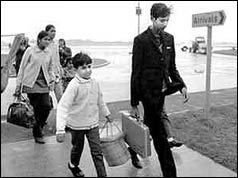
On 18th September 1972, BBC News reported that the first 193 Ugandan refugees, fleeing persecution by the country’s military dictatorship, had arrived at Stansted Airport, Essex. Over half of the arrivals had British passports, and housing and immediate needs would be overseen by the Ugandan Resettlement Board.
Uganda’s Asian community, numbering around 55 000, many of whom ran family businesses and small enterprise, were ordered in August 1972 to leave the country within 90 days by President Idi Amin. Amin had publicly denounced Ugandan Asians as ‘bloodsuckers’, threatening that any who had not left by the arbitrary deadline of November 8th would be interned in military detention camps.
Many of the initial flight of refugees had endured frightening experiences prior to their departure from Uganda, at the hands of Amin’s troops. "On the way to the airport the coach was stopped by troops seven times, and we were all held at gun point," one refugee told reporters. Another stated that he had been robbed of personal valuables and Ugandan currency on the way to Entebbe airport.
News reports at the time cited some opposition within the UK over the acceptance of the Ugandan Asians. The Leicester local authority mounted a newspaper campaign urging refugees not to come to their region seeking jobs and housing. The BBC asserted that, in hindsight, the resettlement programme was seen as ‘a success story for British Immigration’.
The loss of the hardworking and successful Ugandan Asian community devastated Uganda’s agriculture, manufacturing and commerce. Idi Amin was deposed in 1979 and died in Jeddah in 2003, having been responsible for the deaths of as many as 300 000 Ugandan civilians during his reign of terror as President. In 1991, Ugandan President Yoweri Museveni invited the expelled community to return home to help rebuild the economy.
The Wilson Labour government also had to grapple with a refugee crisis from a former African colony.
In February 1968, BBC news reported;
"…Another 96 Indians and Pakistanis from Kenya have arrived in Britain, the latest in a growing exodus of Kenyan Asians fleeing from laws which prevent them making a living…"
Many Asian people living in Kenya had not taken up Kenyan citizenship following the country’s independence from Britain in 1963, but possessed British passports. Under Kenya’s Africanisation policy, non-citizens required work permits, and were being removed from employment in favour of Kenyan nationals. There was growing public demand for laws to prevent non-citizens from owning businesses or even operating as street and market traders. As a result, British passport holders were leaving Kenya at the rate of 1000 per month, leaving a huge deficit in skills and experience within the business community and civil service.
Fearing a backlash over the large numbers of Asian immigrants, Home Secretary, and future Prime Minister, James Callaghan, rushed through the Commonwealth Immigration Act, which made it a requirement that prospective immigrants must have a 'close connection' with Britain.
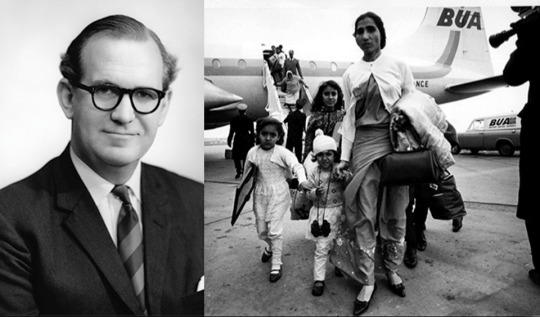
This led to disagreement in Cabinet, with Secretary of State for Commonwealth Affairs, George Thomson (1921-2008) arguing;
"…To pass such legislation would be wrong in principle, clearly discrimination on the grounds of colour, and contrary to everything we stand for…"
In 1971, the Heath government made further legislative changes that would mean that (some) immigrants from Commonwealth countries would be treated no more favourably than those from the rest of the world, and that tightened restrictions on those who stayed by linking work permits to a specific job and location, requiring registration with police, and reapplication to stay in Britain each 12 months.
The Patrial Right of Abode lifted all restrictions on those immigrants with a direct ancestral connection with Britain.

Home Secretary Reginald Maudling (later famous for being smacked in the face by Irish MP Bernadette Devlin, and for having to resign over a corruption scandal linked with disgraced property developer John Poulson) denied that this was, in effect, a 'colour bar', telling the BBC;
"…Of course they are more likely to be white because we have on the whole more whites than coloureds in this country, but there is no colour bar involved…"
Unsurprisingly, not everyone was convinced.
Vishna Sharma, Executive Secretary of the Joint Council for the Welfare of Immigrants, described the bill to BBC News as, "basically racially discriminatory, repressive and divisive," and added, "It will create divisions amongst the Commonwealth citizens already living in this country on patrial and non-patrial basis. It will create day-to-day bureaucracy and interference on people living in this country. It will create more hardship for people wanting to enter into this country."
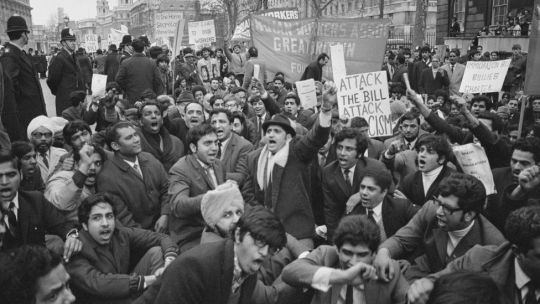
(Source; BBC reporting and history.com. Photo Credits; BBC News)
#social history#uk politics#working class history#social justice#uk government#human rights#uk history#british culture#society#history#race relations#immigration
26 notes
·
View notes
Text
Excerpt from this story from the New York Times:
On the lush, rolling savannas that link northern Tanzania to Amboseli National Park in Kenya, foraging elephants move back and forth on a sloping landscape in the shadow of snow-capped Mount Kilimanjaro.
The animals are accustomed to open-sided 4x4s full of tourists on the Kenyan side and seem to sense no danger from the visitors pointing phones. But what the animals probably do not know is that just across the border on the Tanzanian side, which for three decades was just as safe as the park, there are now people pointing guns, not cameras.
Since September, five bull elephants from a population centered around Amboseli have been shot and killed, most likely by trophy hunters, in the Tanzanian part of this wildlife corridor. At least two were so-called super tuskers, with tusks so long that they swept the ground.
There hasn’t been a similar cluster of rapid killings in the area since the mid-1990s. Conservationists say it points to a breakdown of a tacit agreement between the countries that banned hunting in the border zone.
It also highlights challenges the neighbors face in aligning different approaches to managing their shared wildlife heritage: Kenya forbids hunting and gets all its wildlife revenue through sightseeing. While wildlife spotting safaris are an important part of the Tanzanian economy, the country also permits wealthy tourists to shoot big game.
“This is heartbreaking for me,” said Cynthia Moss, an American zoologist monitoring the roughly 2,000 elephants in the Amboseli herd as director of the Amboseli Trust for Elephants. About 10 of Amboseli’s super tuskers are left, and an additional 15 or so remain across Kenya, she said. “I know these elephants. I know how trusting they are.”
The killings have sparked an uproar in Kenya. In April, scores of leading conservationists wrote an open letter to the Tanzanian government demanding that the authorities ban hunting within 25 miles of the Kenyan border.
A spokesperson for the Tanzanian Ministry of Natural Resources and Tourism, asked for comment, said the country’s conservation strategy was based on “a strong foundation of regulation, research and scientific evidence” and noted that Tanzania had one of the most abundant elephant populations in Africa. Government statements in the past have justified hunting on the grounds that it brings in millions in much-needed income.
Kenya’s wildlife service did not respond to repeated requests for comment.
3 notes
·
View notes
Text
[...]
Del Monte’s 80 sq km plantation sits on the border of Murang’a and Kiambu counties, about 40 kilometres northeast of Nairobi, in a landscape marked with lush green vegetation and rich red soil. The area is also blighted by poverty, unemployment and drug use. This deprivation is despite the money generated by Del Monte, whose pineapple exports earned the country’s economy more than $100m in foreign exchange in 2018. This financial firepower has provided the company with political clout.
Among local villagers, the vast farm is often described as kwa guuka, meaning “our grandfather’s”. It is a bitter reference to the fact that many families were forcefully evicted from the land when it was first acquired by the company’s predecessor several decades ago.
The farm is the single largest exporter of Kenyan produce to the world. This huge global operation means that, although countless pineapples are grown in the area every year, virtually the only ones sold locally are those that have been stolen from the farm.
“The boys around don't have anything much to do, and they need money for their survival. So the easiest way is to go and raid the farm, get the pineapples and sell to the public,” says Joel. “Mostly it's driven by peer pressure and poverty.”
These conditions stand in stark contrast with the lifestyle enjoyed by the 237 guards employed by Del Monte at the farm, who have fully serviced schools, hospitals and sports grounds on company premises.
[...]
14 notes
·
View notes
Text
The choices facing Kenya's President William Ruto are now far from easy.
Elected in 2022 pledging to cut corruption, shore up the country's faltering economy and help the poor, the embattled Mr Ruto now faces an unprecedented rebellion against his finance bill - legislation he says he is an essential part of his plan to build the nation.
It might be easier to know which way to turn if the opposition Mr Ruto faced was confined within parliament.
An astute political player, deputy president for almost a decade before being elected to the top spot, Mr Ruto has years of experience wrangling politics to get things done.
Now though, the forces massed against him are something truly beyond his control.
Live: At least five shot dead in Kenya at protests against tax hikes - reports
Kenya's tax proposals that have triggered protests
Why Kenya's president wants people to love the taxman
A mass movement which grew organically out of discontent expressed on social media has grown into a powerful rebellion which has filled the streets of cities and towns across the country.
In the capital, the Nairobi governor's office, city hall and the country's parliament have this afternoon all been set ablaze.
The protesters had started the day threatening a "total shutdown".
And at the end of a day of chaos and panic across the country, often set against the sound of teargas and at times live fire from police, there is no doubt their fury has been heard.
For Mr Ruto, the choice now seems to be about whether to yield to the demonstrators and abandon his budget, or to dig in and push it through, risking further turmoil and bloodshed on the streets.
He has argued the raft of new taxes are essential to control Kenya's debt - a huge sum of more than $80bn (£63bn), which costs the country more than half of its annual tax revenues to service.
Kenya secured a restructuring of its international debt commitments earlier this year – something which immediately pushed a surge in the value of its currency, the shilling.
Increasingly seen as one of Africa’s leading statesmen, recently returned from a state visit to the White House, Mr Ruto understands the importance to his nation’s economy of avoiding a default on its debt payments.
For those in his government the calculation was that controlling the state finances by increasing the tax burden was preferable to cutting public services.
The finance bill, which was due to become law on Monday, originally brought in dozens of new or increased taxes on everything from car ownership and financial transactions to sanitary pads.
Several of the most contentious taxes have already been dropped following consultation with the public.
But the controversy over the budget follows other revenue-raising measures introduced by Mr Ruto, including increased taxes for healthcare and low-cost housing.
And for those on the street, there's a third solution available to the government beyond cutting services or raising taxes.
Many blame the country’s financial woes on corruption, with taxpayers wary of paying more amidst a lack of trust over the transparency of the state.
For Mr Ruto it is perhaps the shadows of this past that make his current position so difficult.
He rose from the deputy presidency to the presidency in the 2022 elections, and with a focus on green energy and tech he has certainly got new ideas about where he wants to take Kenya.
But for many on the streets, Mr Ruto’s record as a senior figure in government over a period marred by corruption means it’s hard to trust him with their taxes.
Tuesday’s events in Nairobi leave Mr Ruto seemingly pinned now into a tight corner.
Facing condemnation for what many Kenyans see as a heavy-handed response to protests in the street, he must choose now whether to hold firm to his budget or to find a different route to securing financial security for Kenya.
In the meantime, those who came out to have their voices heard in Nairobi and across the country show no sign of giving up.
When Mr Ruto addressed the nation in his inauguration speech, he spoke directly to the country’s politically-active youth.
“My political journey,” he told them, “Similarly began as a young campaign volunteer, fresh out of university.
“Your experience and lessons learnt should form the basis for your leadership journey.”
Now it is a confrontation with a youth-led movement that poses what many consider to the be biggest challenge to authority in Kenya since the country’s independence in 1963.
The next days for Mr Ruto will be crucial, as he faces tough choices for his government and the country.
2 notes
·
View notes
Text
HOW THE IMF KEEPS AFRICANS POOR
Financial rights activist Alex Gladstein dissects the IMF’s African operations in this video. Drawing on the case of Zaire (now the Democratic Republic of Congo), he reveals a pattern of the IMF appointing its own officials to oversee African treasuries, fostering export-led economies, devaluing local currencies and striking deals with dictators.
This is the same playbook allegedly at work in Kenya. Protesters accuse the government of destroying the country’s future by selling out to the IMF’s neocolonialist agenda. Kenya’s tech-savvy and well-educated Gen Z is leading the charge against financial imperialism - coming out en masse repeatedly to denounce proposed tax hikes that the IMF is urging President William Ruto to adopt.
Their resistance to the so-called Finance Bill - basically, the country’s draft 2024 budget - has seen it already watered down in parliament. Now, the protests have evolved into a call for the US-leaning Ruto to drastically change direction and curb wasteful spending by the government.
Regardless of political, social, and religious differences, Kenyan citizens have united in rejecting the treasury’s budget. They point the finger at the IMF for the significant tax hikes. The international lender has injected a substantial $3.5 billion in loans into the East African nation, but these funds come with strings attached. Some US Congress members were even in Kenya’s parliament, monitoring progress on the Finance Bill.
Could the determined efforts of Kenya’s Gen Z mark the beginning of the end of their country’s economic exploitation?
4 notes
·
View notes
Text
How Wangari Maathai Built a Global Movement
Wangari Maathai was one of the most acclaimed environmentalists of this century who planted many millions of trees changing lives, and being an inspiration to society. Her legacy and story continues to inspire us to pursue sustainable development.
youtube
Maathai was born into rural Kenya in 1940. She swiftly established a strong connection to her land when she began exploring it as a child. While surrounded by streams for hours, watching tadpoles swimming through her mother's waters, she learned the idea the trees were "children from God," so Maathai was awed by them. When Kenya established an independent government, in 1963 she was able to work toward improving lives as well and the environment of Kenyans.
Maathai established African's Green Belt Movement (GBM) in 1977 to support Kenyan women and to improve the condition of the environment by forest reforestation. GBM was soon expanding, and Maathai recognized that poverty and environmental degradation was at the root of a variety of country problems; she heard from women who lived in rural areas that streams were drying up, food supplies becoming less secure and they couldn't afford firewood to cook with or fence their homes with. Her solution to these issues consisted of encouraging the communities to establish trees - they would help hold soil while retaining rainwater at a steady level while providing food and income for families who live in her supervision.
Maathai made her mark through both reforestation and democracy advocacy at GBM and was an advocate during Kenya's political upheaval that ensued after elections in 2007 and fighting to ensure that Kenya's constitution was a true representation of all Kenyan citizens. In addition, she played an essential voice in efforts to resolve conflicts and also acted as a mediator during times of political tension.
GBM continues to promote environmental conservation, democratic governance, and empowerment of communities - which includes recovering and restoring forests throughout Kenya as well as creating more sustainable and sustainable economies to empower women Kenya.
Maathai was a pioneer when it comes to combining the protection of the environment with human rights. She was awarded both the 2004 Nobel Peace Prize and U.N. Environment Program Global 500 Award and Right Livelihood Prize - known as an alternative Nobel Peace Prize at her time of death. Maathai made history through linking conservation of the environment with rights-based advocacy. She received numerous honors, among them being recognized with these two prestigious awards.
Maathai was also a founder part of the Nobel Women's Institute and worked constantly to ensure equality and empowerment throughout the globe. Her achievements as part this cause serve to inspire us all in continuing movements to promote environmental as well as women's empowerment, regardless of the obstacles we face. With determination and conviction Maathai overcame even the most difficult challenges and left behind a lasting legacy and opening the path for future generations of people who are active in these causes.
The video from YouTube
2 notes
·
View notes